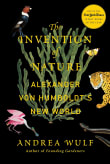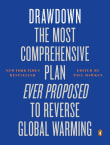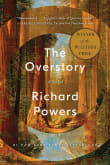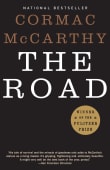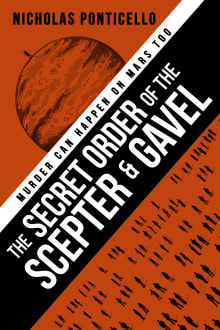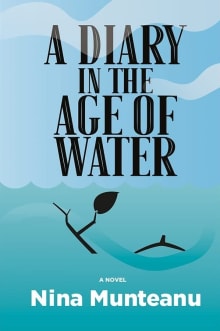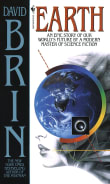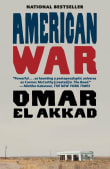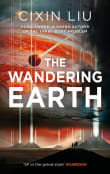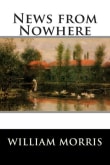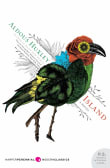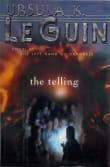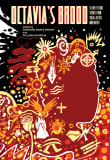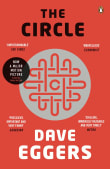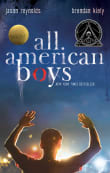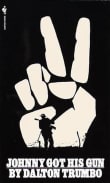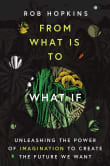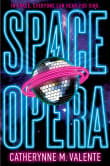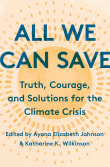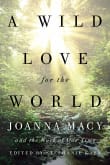The Ministry for the Future
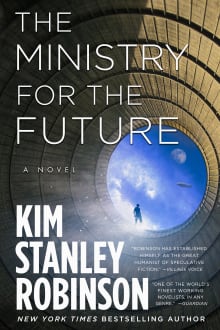
Book description
ONE OF BARACK OBAMA’S FAVORITE BOOKS OF THE YEAR
“The best science-fiction nonfiction novel I’ve ever read.” —Jonathan Lethem
"If I could get policymakers, and citizens, everywhere to read just one book this year, it would be Kim Stanley Robinson’s The Ministry for the Future." —Ezra Klein (Vox)
The Ministry…
Why read it?
26 authors picked The Ministry for the Future as one of their favorite books. Why do they recommend it?

I loved the nuanced solutions Robinson proposes in this book to fix the biggest problems of today. Although the book wasn’t my favorite in terms of plot, I appreciated Robinson’s work in detailing realistic solutions that meaningfully address climate change. It provoked me to really scrutinize what we are and are not doing to tackle rising global temperatures.
From CJ's list on outrageous books that address climate change.

While the characters and their unique challenges are fictional, a lot of the scientific details in the book are based in real research. Some of the solutions they present, like drilling into glaciers to drain off the meltwater, are genuinely being tested by scientists today. As a science writer, I loved this attention to detail, and felt somewhat more hopeful for the future after reading this interpretation of it.

It takes a look at the complexities of a globally connect world through government and trade, while breaking down the elements of climate change that are impacting daily life but keeping governments around the world form changing their practices. It was nuanced, digestible in small bites, and completely immersive.
If you love The Ministry for the Future...

I don’t usually read science fiction, but this book completely changed my perspective. It was an eye-opening experience, vividly illustrating what the climate crisis could look like if we don’t take significant action now. I was hooked by how realistic the scenarios felt, even though the story is fiction.
I found myself thinking deeply about the potential consequences of inaction and how urgent it is to address the climate crisis. The fictional eyewitness accounts made it even more impactful, giving me a sense of immediacy and personal connection to the issue. I didn’t expect a science fiction novel to be…
From Trista's list on dreamers who want to shape the future.

Robinson’s writing project has been to build utopias, but when faced with the climate crisis, he was forced to come up with an optimal outcome rather than an idealistic one.
It transforms a powerful set of ideas into a compelling human story that will undoubtedly influence the real world as it plays out.
From Akshat's list on crash course in our climate choices.

For those looking for a more hopeful account of how climate activism and progressive policy can co-create a more just and sustainable future beyond capitalism, look no further than this book. It is rightfully celebrated as an essential utopian novel of our time.
Most utopian visionaries merely describe the future they want without describing how we might actually get there. In contrast, Robinson shows us how we might cross what he calls the “Great Trench” that separates the current world from the hoped-for future.
This is not a starry-eyed utopian book: it clearly recognizes the intense political struggles, the worsening…
From Michael's list on books that help us make sense of the future.
If you love Kim Stanley Robinson...

I’ve long been a fan of Robinson’s fiction. This recent book tells the story of how humanity navigates the climate crisis, starting a few years from now and going maybe 30 years into the future, centered on the people leading the new (fictitious) UN organization of the title.
Robinson pulls all the strands together plausibly – increasingly severe impacts, everyone thrashing around trying responses, and conflict. He doesn’t shy away from violence, errors, tragic choices, or the vast scale of disruption and suffering climate change holds in store. Yet I find it a strangely optimistic book. The worst doesn’t happen.…

This book on utopian monetary policy is absolutely astonishing.
It is set in a near future that is very much like today, but with climate change just coming into full swing. Alongside terrorists who are using armed drones to physically stop heads of polluting industries, there is an international institution (the Ministry of the Future) whose leader Mary Murphy is trying to stop climate change by getting central banks to emit and create a market for a global carbon coin granted for CO2 avoidance.
The suspenseful novel explains Dalton Chen’s blueprint and the best strategy I know of…

We’re living in the 6th mass extinction of life on Earth, while key ecological systems like oceanic currents and weather patterns are being destabilized by climate change. What will happen as ecological collapse accelerates and as governments and corporations continue to fail in their responses?
Kim Stanley Robinson’s book explores a near-future scenario in which, as millions die in climate disasters, organized groups of “climate militants” begin assassinating fossil fuel company executives and sabotaging key industrial facilities. This catalyzes transformations in the entire global economy, shifting the course of the world.
While Robinson has more faith in the role of…
If you love The Ministry for the Future...

The Ministry for the Future starts with a bang. Then, as in so many of Robinson’s books, the setting and theme take center stage.
The setting in this ambitious novel is the world at large. The theme is the demise of that world as a human habitat, brought on by the greed of its human inhabitants. Robinson offers a powerful polemic on the evils of capitalism. But at the same time, he puts forth a multiplicity of well-considered ideas, many even now being earnestly discussed or realized in dealing with ecological emergencies worldwide.
This book reads more like nonfiction. I’ll…
Want books like The Ministry for the Future?
Our community of 12,000+ authors has personally recommended 100 books like The Ministry for the Future.



